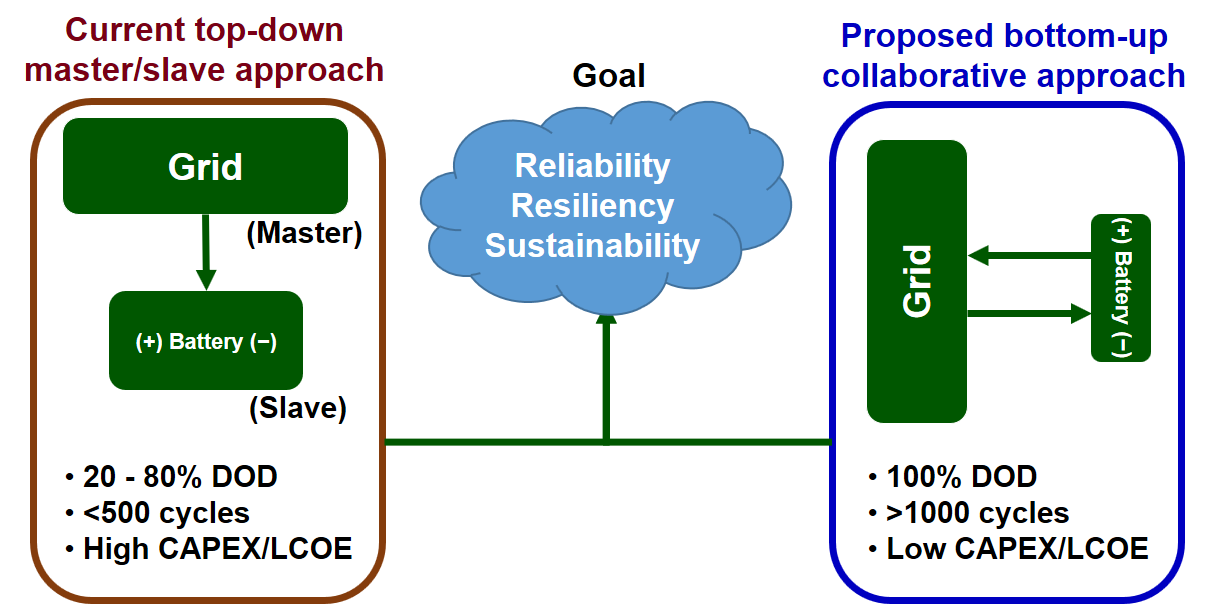5 Questions with Dan Schwartz, Director of the Clean Energy Institute at the University of Washington
Source: https://www.electrochem.org/redcat-blog/5-questions-dan-schwartz
ECS will be hosting its first ever OpenCon event on October 1 in National Harbor, MD. OpenCon will be ECS’s first, large community event aimed at creating a culture of change in how research is designed, shared, discussed, and disseminated, with the ultimate goal of making scientific progress faster.
During ECS’s Open Con, Dan Schwartz, director of the Clean Energy Institute at the University of Washington, will give a talk on the open science movement and academia. In addition to speaking at OpenCon, Schwartz will also co-organize the ECS Data Sciences Hack Day.
The following conversation is part of a series with speakers from the upcoming ECS OpenCon. Read the rest of the series.
ECS: When we say “data sciences,” what does this encompass?
Dan Schwartz: “Data science” is shorthand for the scientific and engineering principles that underpin efficient creation, visualization, analysis, and sharing of data. I have a conjecture—unevaluated but euphemistically called “Schwartz’s law” around here—that every PhD I graduate produce more data than the sum of all prior PhDs. Basically, each year cameras and detectors have deeper bit depth, equipment and software get more automated, more of the software tools allow data and simulation to be animated, etc. In short, both experimentalists and simulation people are seeing huge growth in data they need to analyze, visualize, and share with collaborators.
ECS: Specifically, what areas of electrochemistry and/or solid state science can most benefit from the various components of data sciences, such as open data, open source software and cloud-based computing tools, etc.?
DS: I believe we can accelerate progress and improve reproducibility of all ECS science and technology through open data, open software, and access to shared computational resources. A critical part of this is building the ECS community that establishes standards for data repositories, creates, peer evaluates, and improves software tools.
ECS: Give us the postcard version of why ECS needs to do more in the data sciences area.
DS: Data is being generated at unprecedented rates by experimental and simulation-oriented electrochemical and solid-state scientists and engineers. Open data, software, and computational tools have unleashed human creativity in unimaginable ways for some fields of study. Why not define and systematize data sciences to unleash this creativity in the ECS community?
ECS: What do you think about the concern with “scooping” if researchers share their data, and especially if they share their data as open?
DS: Here is a harsh truth. When data and software are open, insightful and effective science and engineering win. If you worry about being scooped in an open playing field, then you are saying you do not want to compete on “insight and effective implementation.”
ECS: What aspects of openness does the University of Washington embrace (e.g., at the eScience Institute)?
DS: My colleagues Jim Pfaendtner and David Beck have created an NSF-funded graduate training program called “Data Intensive Research to Enable CleanTech” to make sure students in the Clean Energy Institute and several partner departments get exposed to the best science and engineering tools and educational practices being developed by our eScience Institute colleagues. A key principle is open science because it supports reproducibility and acceleration for all. Our campus has developed tools to help, like a long-lived archive developed by the University Library System called Research Works. Our graduate school has become more open to new kinds of research products being included in dissertations and theses.
